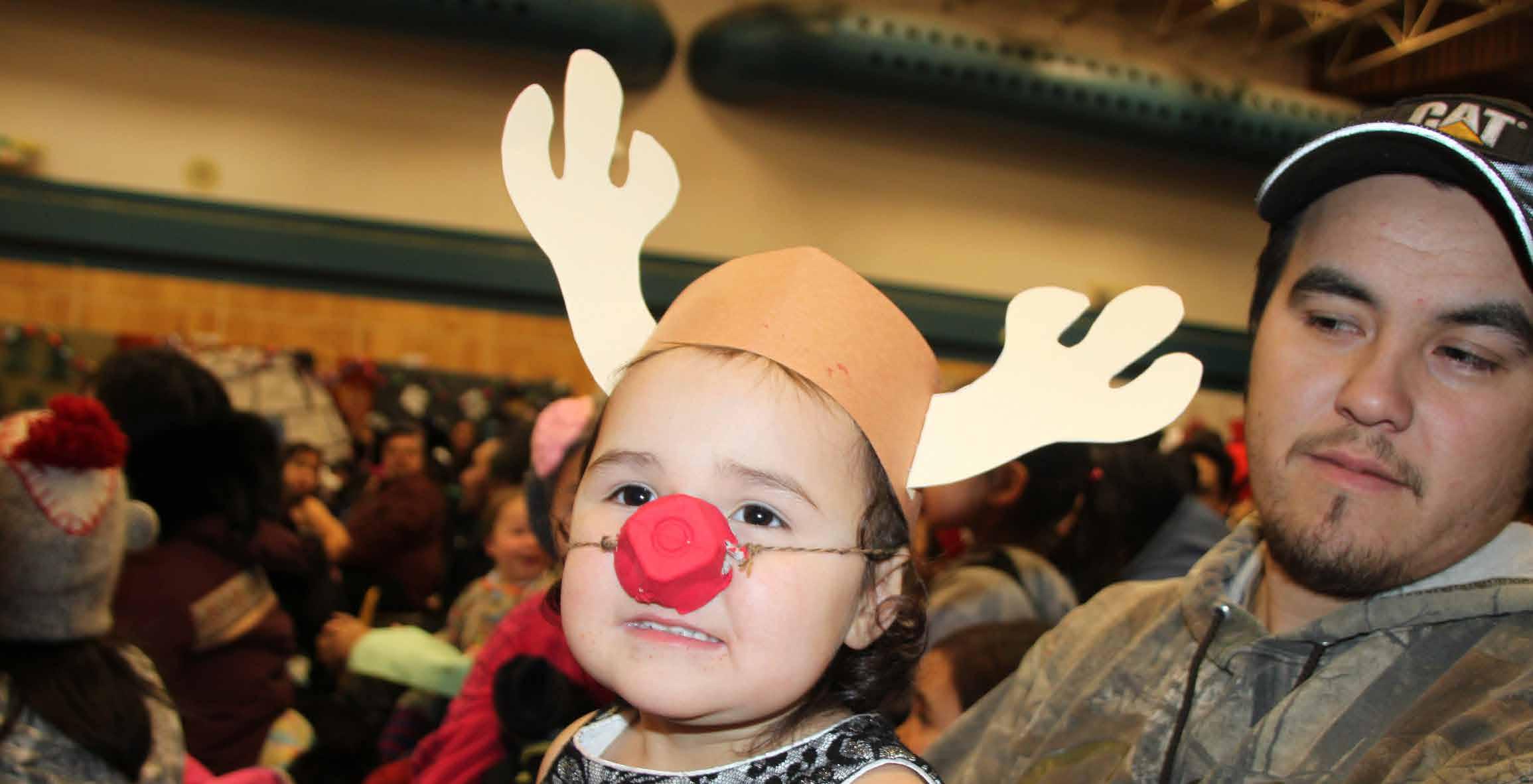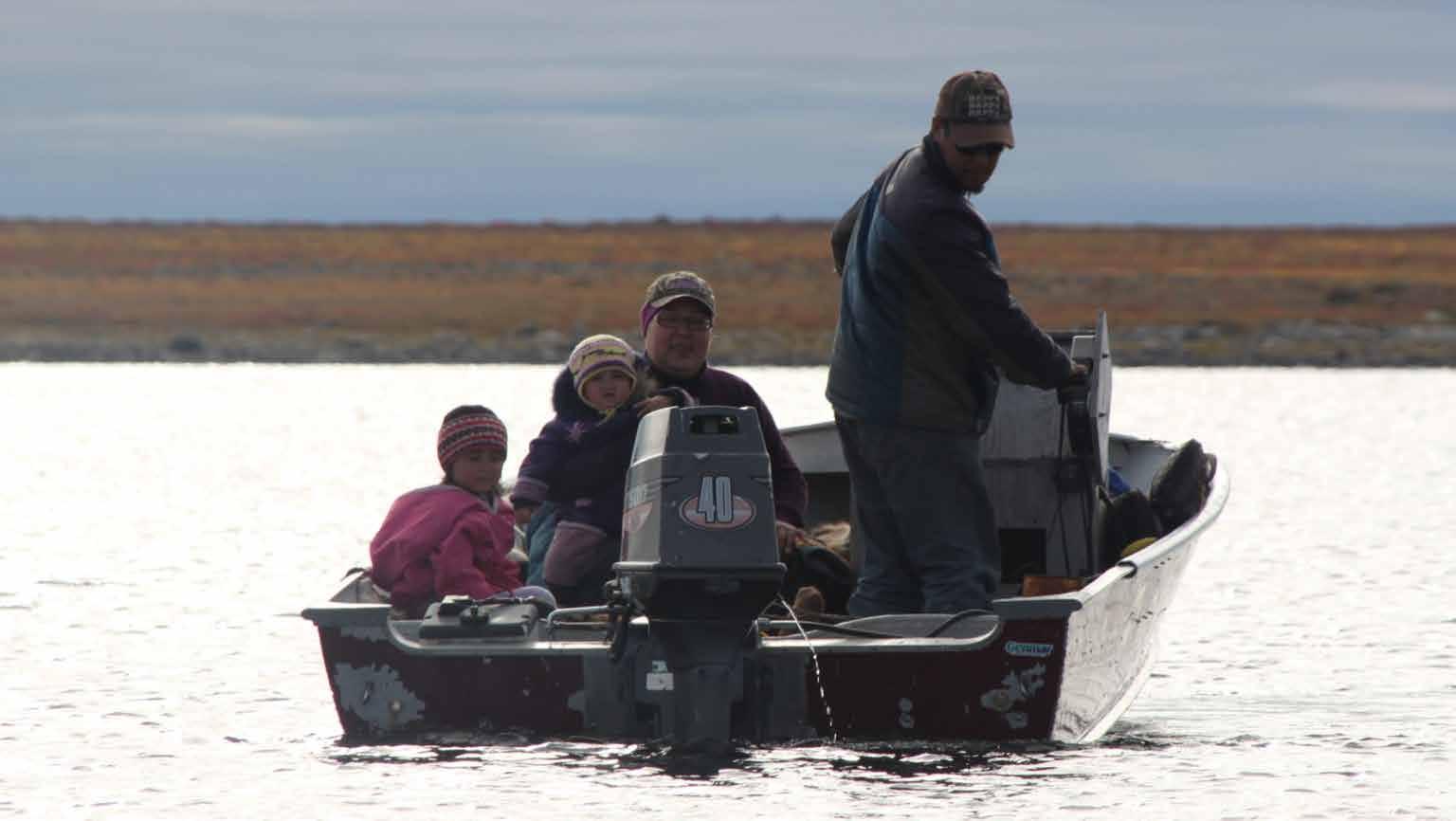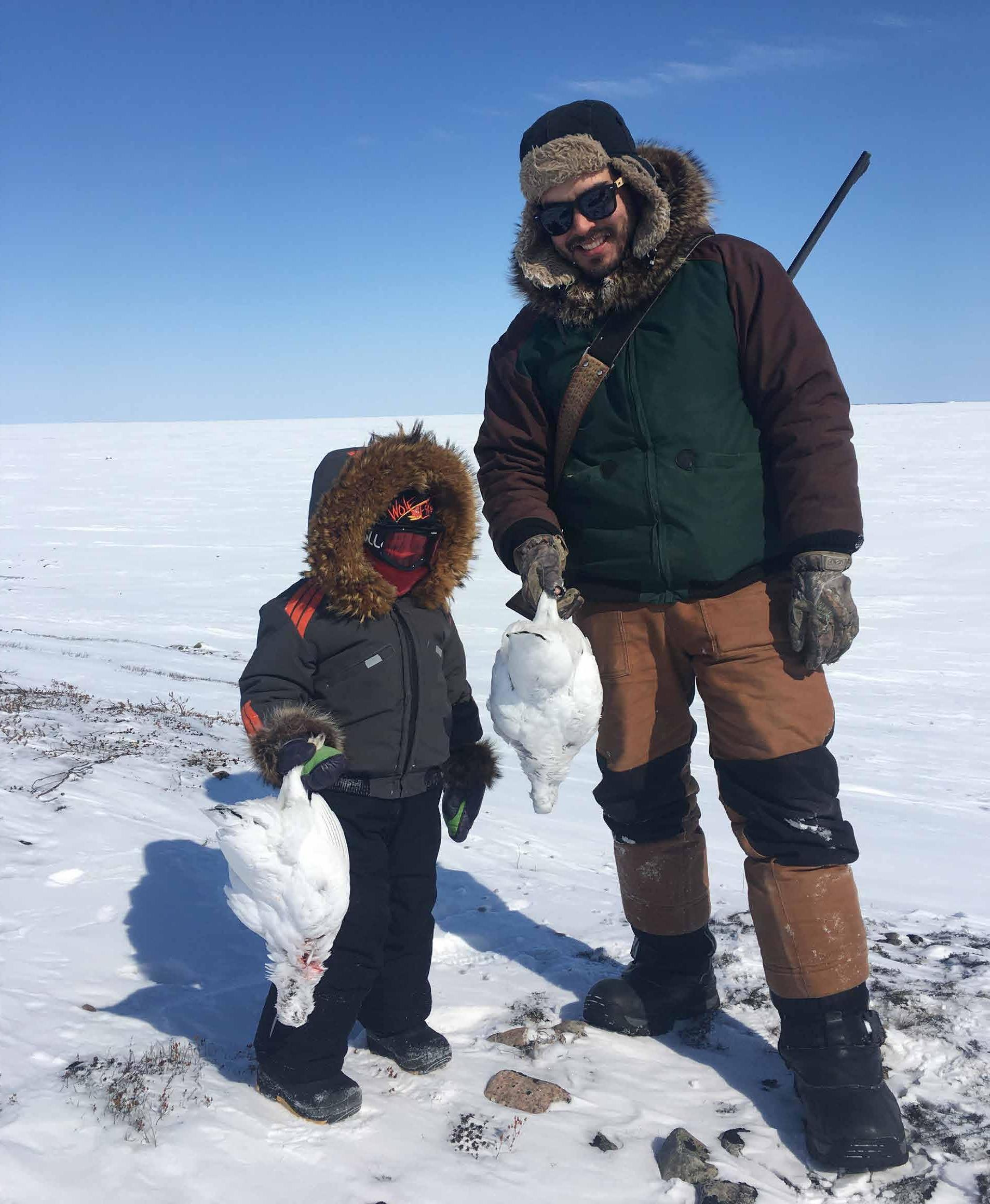
2 minute read
Family Traditions
from Fatherhood is forever: A resource booklet about providing for a healthy family based on Inunnguiniq
by NCCIH-CCNSA
An iglu, though made by a man, is not made to just suit the man; it is going to be designed to include the rest of the family.
-Mark Kalluak
Spending time with family is very important. It builds security, trust and memories. Inuit always spent a lot of time together as a family. Establish routines that your family can rely on. This may be a regular getting up time and bedtime, going out on the land together on weekends, or sharing stories over meals.
Inuit emphasize the importance of networks of relationship that support each person. These are established in childhood, often around the naming of a child and the special kinship relations. Make time for your child to visit and spend time with the people who have these special relationships. Create your own family traditions that allow you to share feelings and your love for each other. These times can also include harvesting together, preparing or preserving food, seasonal and cultural activities. These are also important times to teach cultural skills and encourage your children to explore the land/sea and connect with each other in these activities.

Encourage Inuktut language use in your home and interact often with Elders and family members. Participate in cultural activities that help your child build a strong sense of cultural identity and shared community. Celebrate your child’s firsts following traditional practices such as their first kill or first parka. Build connections with the avvaq family your child is connected to and share stories about their namesake as a way of building identity and a sense of purpose for your child.

A young boy starts searching for tangible materials and for things to make – something he will play with. He hears people talking but does not seem to pay attention. All the while he is listening, and once in a while he asks questions about what he would like to know. He is learning through play. He wants to go with people who are going out hunting. He has many interests now. He is more able to remember what he is most proud of. His interest in play is so intense, he never seems to get hungry – eating takes too long. He gains many friends. He follows others and sometimes gets into mischief. He is able to stand up for himself.
The child needs to be closely monitored. Do not let them hear things that are not suitable for their age. Do not let them see unacceptable behaviour. Do not leave your children by themselves at home. As a parent, tell your children to be good to others. When handling meat, let them get bloody – the blood washes off easily. Tell them not to think the meat is gross, and not to be queasy about animals. Expect them to be good to people who are picked on. Remind them often about respecting people with disabilities. Tell them to show love, to be helpful, and to help elderly people. Expect them to alert you to people who are in need of your support and let them participate in sharing with those people.
-Louis Angalik







